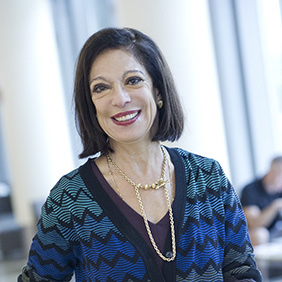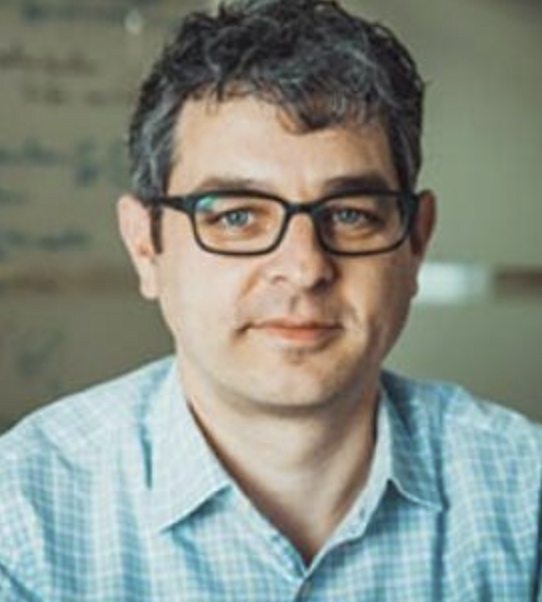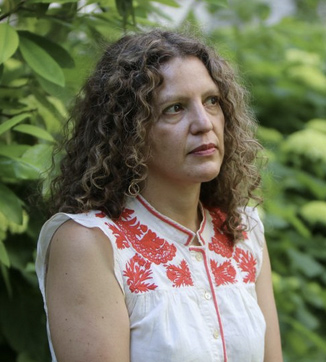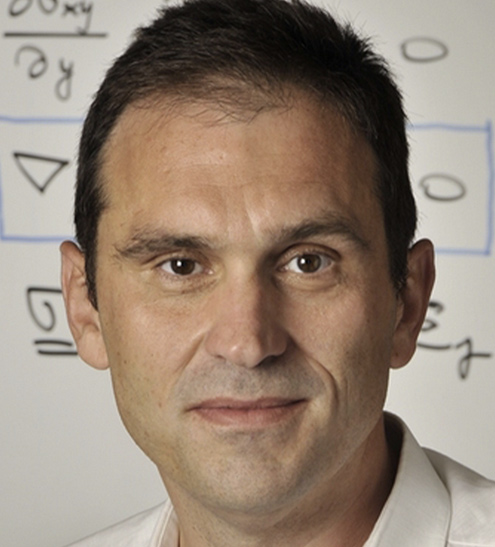Candidates for Election to Faculty Newsletter Editorial Board
The MIT Faculty Newsletter has represented the views of MIT faculty for more than 35 years. Since its inception, the Newsletter has been maintained by a volunteer Editorial Board, over time involving more than 60 members of the faculty from all Schools of the Institute. Since 2008 we have followed a formal nomination and election process with direct electronic election of Board members by an electorate of the full faculty and emeritus faculty. Given the absence at MIT of a faculty senate or elected council, the FNL is one of the very few independent voices of the MIT Faculty. We hope you will or already have participated this year via the email ballot.
The origin of the Faculty Newsletter (FNL) was in response to the dissolution of the Department of Applied Biological Sciences (ABS) in December of 1988 by then-Provost John Deutch and Dean Gene Brown. In response, a group of senior faculty prepared a petition calling for a reversal of the administration’s actions. At the time they had difficulty in circulating the draft, due to the unwillingness of the administration to make faculty mailing lists available. In addition, with the faculty meeting agenda set and the faculty meeting chaired by the president, fully open discussion was not easy. The FNL emerged as an effort to establish open lines of communication among faculty (web.mit.edu/fnl/volume/201/ fnl00.pdf). Though the dissolution was not reversed, the faculty resistance resulted in all ABS faculty and students remaining employed at MIT. The report of the Committee appointed to review the affair can be found at web.mit.edu/jbelcher/www/ABS/.
During the ensuing years, the Newsletter has provided a forum for expression of faculty concerns and views, a major channel of communication among the faculty, and a means for candid debate on difficult issues. The primary guiding principles have been to provide open access for faculty and emeritus faculty to express views on issues of concern. This is ensured through control of editorial policy by the faculty Editorial Board, independent of influence by the MIT administration.
The Newsletter has come to be widely read, not just at MIT but outside as well, through the online edition at fnl.mit.edu. The FNL – though focused on MIT – also serves as a forum for discussion of critical national and international issues. With the support and involvement of MIT’s faculty, the Newsletter will continue to play an important role at MIT and beyond.
Nicholas Ashford
http://ashford.mit.edu/

Nicholas Ashford is Professor of Technology & Policy and Director of the Technology & Law Program at MIT, where he teaches courses in Environmental Law, Policy, and Economics; Law, Technology, and Public Policy; and Technology, Globalization and Sustainable Development. He is a Faculty Associate of the Center for Socio-technical Research in the School of Engineering; the Institute for Work and Employment Research in the Sloan School of Management; and the Environmental Policy Group in the Urban Studies Department. He holds both a PhD in Chemistry and a Law Degree from the University of Chicago, where he also received graduate education in Economics. In the late 1970’s he secured funding from the Sloan Foundation to create the Technology and Policy Program at MIT.
Dr. Ashford is the co-author of two textbooks/readers used in his classes: Technology, Globalization, and Sustainable Development: Transforming the Industrial State and Environmental Law, Policy and Economics: Reclaiming the Environmental Agenda. He has recently written two articles for the MIT Faculty Newsletter on Misinformation and on Distractive Driving. Other publications include writings on community participation in energy policy, addressing inequality, universal basic income and inclusive capitalism, the role of environment in cancer, the four-day workweek, the precautionary principle, and major challenges to education for sustainable development. These research areas should encourage views from the MIT faculty in the FNL Editorial Board as important sources of ideas and reforms in the exercise of academic freedom.
Nazli Choucri (current Editorial Board member)
https://nchoucri.mit.edu

I view the Faculty Newsletter as a distinctive and unique venue for voicing the views of the faculty – the convergences and the divergences, the various contentions and the forms of cooperation, as well as the continued effort to do so, and always with attention and respect. As Professor in the Department of Political Science, I appreciate how contentions can run deep – here and everywhere – as I do the importance of interaction, communication, and just listening. These are complex times, and our immediate priority is, and must continue to be, the wellbeing of our students. At the Institute, I relate to the common category of “underrepresented minority”. Such is also the case in every single professional community with which I interact. That, in itself, has its reward, especially for a scholar whose reach is anchored in multi-disciplinarity. Then, as a longstanding member of the MIT community, I continue to appreciate that excellence, integrity, and diversity are fundamental values of the MIT Faculty and that respect for differences – with-no-exceptions – is core to the Faculty Newsletter. Clearly, and without reservations, it is imperative that this main venue for faculty voices remains one with independence and autonomy.
Yoel Fink – Department of Dissent (DMSE/EECS/RLE/ISN)
https://fnl.mit.edu/wp-content/uploads/2024/05/Yoel-Fink-short-CV-2-3-24.pdf

I will be advocating for:
1. Representation: Broaden representation to reflect the MIT faculty’s diverse disciplines and opinions.
2. Renewal: Modernize to increase transparency, accessibility, and engagement.
3. Relevance: Guide the FNL to focus on pivotal faculty issues, maintaining independence from narrow interests. Work with Pulse (Peko and Michael Short’s polling tool) to help align the FNL’s content with faculty priorities.
“We believe that the Newsletter can be made more effective, more representative, and more exciting. We have several recommendations aimed at rejuvenating and re-energizing the Editorial Board…” Graves Report on the FNL circa 2002.
Thomas Heldt
https://imes.mit.edu/people/heldt-thomas

I am a tenured Associate Professor of Electrical and Biomedical Engineering with the Department of Electrical Engineering & Computer Science. I am also a core faculty member of the Institute for Medical Engineering & Science and a Principal Investigator with the Research Laboratory of Electronics. Having started my university education in physics at Gutenberg University, Germany, and Yale University, I joined MIT as a graduate student in 1997. Following my PhD I remained at MIT as a postdoc (with the Laboratory for Electromagnetic and Electronic Systems) and Principal Research Scientist (Research Laboratory of Electronics) before joining the faculty in 2013. I have thus experienced life at the Institute from various perspectives, interacting with a range of offices and officers.
I value the Faculty Newsletter as an independent forum open to all faculty to provide their perspectives on pressing issues of the day – be they educational, political or institutional. It serves an important purpose in our campus discourse as the only long-form medium to engage with faculty colleagues and the administration. As a member of the FNL Editorial Board, I will support the FNL’s mission by seeking out contributions across a wide range of viewpoints and opinions and maintaining its role as a catalyst for campus debate.
Jonathan A. King (current Editorial Board member)
https://web.mit.edu/King-lab

Together with Professors Vera Kistiakowsky and Lawrence Lidsky, I was a founder of the MIT Faculty Newsletter. We couldn’t remain bystanders to the threatened terminations of all our colleagues in the Department of Applied Biological Sciences. In the decades following, the FNL published numerous reports from Committees and Task Forces and hundreds of articles from faculty on diverse topics of concern. On occasion, maintaining the integrity of the faculty required criticizing administrative decisions – lack of gender equity, building commercial office buildings rather than graduate housing, embracing Saudi Prince Mohammed bin Salman, looking the other way with respect to Jeffrey Epstein’s efforts to influence the campus.
In my department I taught the core laboratory course, advanced undergraduate and graduate courses, and directed the Transmission Electron Microscope Facility for decades, which served the entire Institute. I’ve been a Guggenheim Fellow, President of the Biophysical Society, and recipient of the NIH MERIT Award, of the Emily Gray National Teaching Award of the Biophysical Society, and of MIT’s MLK Jr. Faculty Leadership Award.
If re-elected this will be my last term. I hope to secure the FNL’s future as an independent voice of the faculty as long as MIT lacks a true Faculty Senate.
Tanalís Padilla
https://history.mit.edu/people/tanalis-padilla/

Service on the Faculty Newsletter’s Board is an opportunity to bring my perspective as a historian of the Global South to the MIT community. Attuned to the importance of context, narrative, and international dynamics, I value the opportunity to bring these analytical tools to this forum for faculty discussion. I look forward to working with my colleagues across disciplines to showcase both achievements and challenges in a way that promotes faculty voices at the Institute. I am especially eager to highlight the role of the humanities in MIT’s mission of global engagement.
Franz-Josef Ulm
https://cee.mit.edu/people_individual/franz-josef-ulm/

I am a professor of engineering mechanics in the Department of Civil & Environmental Engineering. I studied in Munich and Paris, became a research scientist (chargé de recherche) in France’s thriving public research system, before joining MIT 25 years ago. I come from a cultural background in which in the 20th century free speech was curtailed with disastrous consequences. It all started in academia.
For 25 years I took FNL for granted: to raise a faculty’s voice in matters of concern and controversy both internal and external to our collective life at MIT, from the courageous position against the Patriot’s Act after 9/11; to the ongoing spectacular failure of our disciplinary system to protect free speech for all since October 7. For there are 1,000 voices to be heard without fear of retribution and intimidation, with a sense of moral responsibility that we all belong here at MIT in full respect of our otherness; I cannot take FNL, its editorial independence and critical role for us all for granted any more. Which is why I want to join the Editorial Board of FNL.


